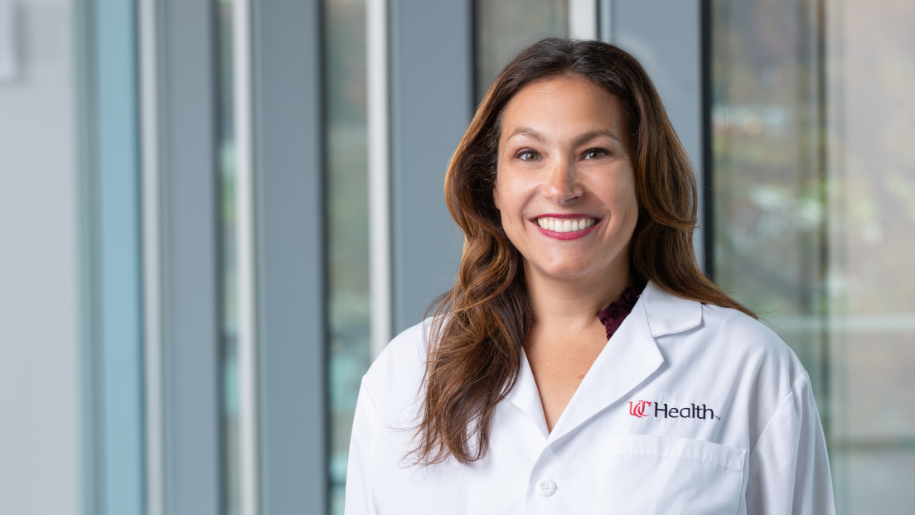“I loved it there. My mom, grandpa, and both my siblings went there. We’re a huge UC family”, said Grace.
The Onset of a Rare Disease
But in February 2022, her life took a scary and unexpected turn when a mononucleosis (mono) diagnosis rapidly escalated.
“I had issues with my liver. I was jaundice and I just kept getting sicker. And then I started having really bad back pain and just wasn't feeling right. For two to three weeks, I wasn’t getting any better,” remembers Grace, reflecting on the early symptoms of what would be diagnosed as a rare disease.
Misdiagnosis and the Search for Answers
She visited her pediatrician every couple of days, knowing something was wrong. She continued to be advised to just watch her symptoms. Dealing with intense pain, Grace ultimately ended up in a local emergency room. Once again the providers advised her to watch and wait, attributing her symptoms to the mono. Grace’s situation rapidly deteriorated further, and within a couple of weeks, she woke up one morning with the right side of her face paralyzed, accompanied by tingling and numbness in her toes and fingers.
Alarmed, her mother, Jenny, took her back to the local emergency room, where she was diagnosed with Bell's Palsy, a complication of mono. With no improvement and escalating symptoms, including facial paralysis, blurred vision, and impaired mobility, Jenny knew it was time for another opinion, and waiting and watching was no longer an option. Jenny is an inpatient nurse navigator at the UC Gardner Neuroscience Institute and knew this was where she would turn to for answers.
Guillain-Barré Syndrome: Diagnosis and Beginning of Recovery
Grace was quickly seen by Stacie Demel, DO, Ph.D., a physician-researcher specializing in neurological disorders in the Department of Neurology and Rehabilitation Medicine. Within minutes, Dr. Demel knew Grace was dealing with Guillain-Barré syndrome (GBS), a rare neurological disorder.
Dr. Demel recalls, “Grace’s symptoms including rapidly progressive weakness, that often includes facial weakness, in conjunction with back pain, and loss of deep tendon reflexes on neurological examination were all signs and symptoms consistent with GBS. Because additional testing, monitoring, and immediate treatment were imperative, we arranged for Grace to be directly admitted to the hospital.”
Despite initial misdiagnoses by outside providers and treatment delays, a pivotal moment occurred when Grace was finally admitted to the intensive care unit (ICU) at UC Medical Center to begin her recovery. Under the care of the UC Health team, Grace received the appropriate treatment, including intravenous immunoglobulin (IVIG), to address the GBS. After 8 days in the ICU, Grace was able to continue her recovery journey at the UC Health Daniel Drake Center where she gradually regained functionality through extensive physical and occupational therapy.



